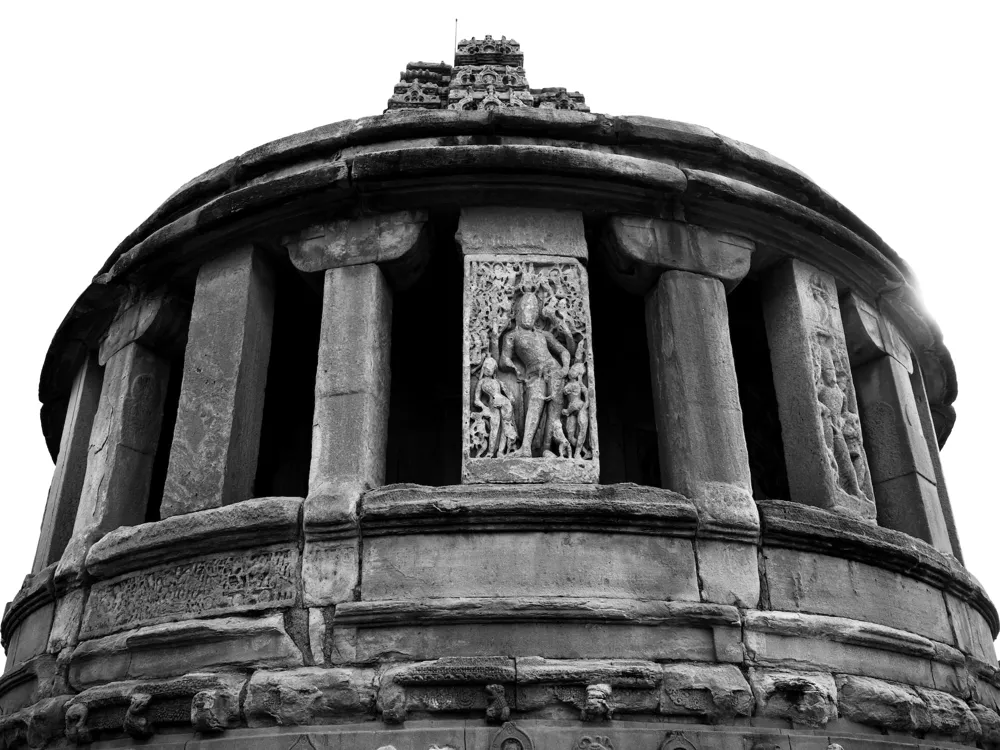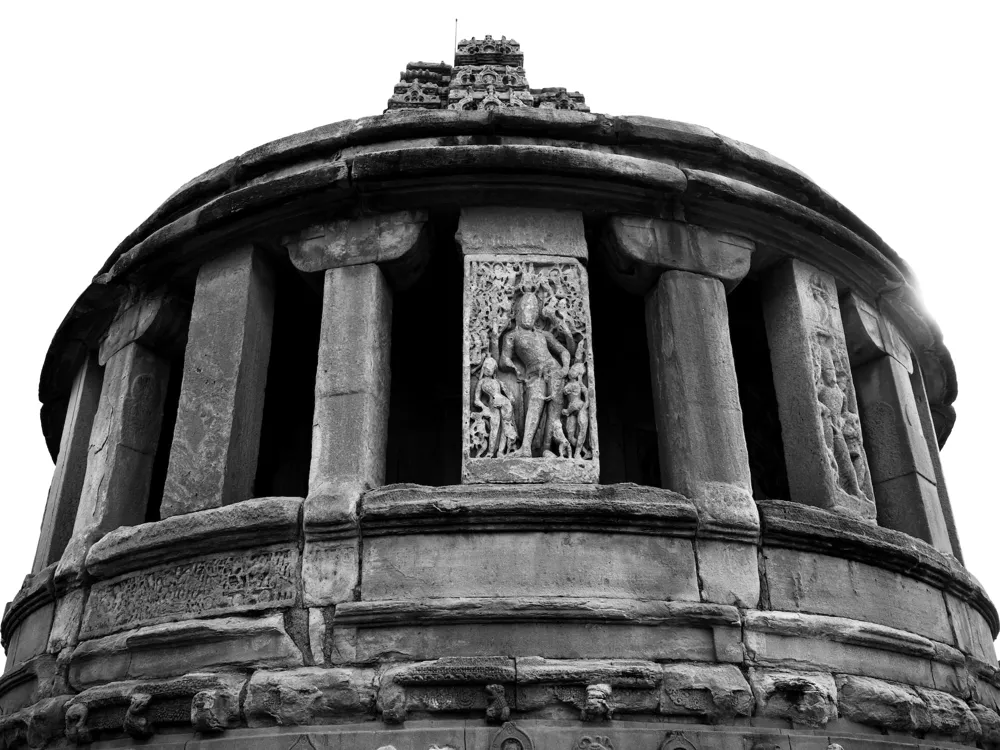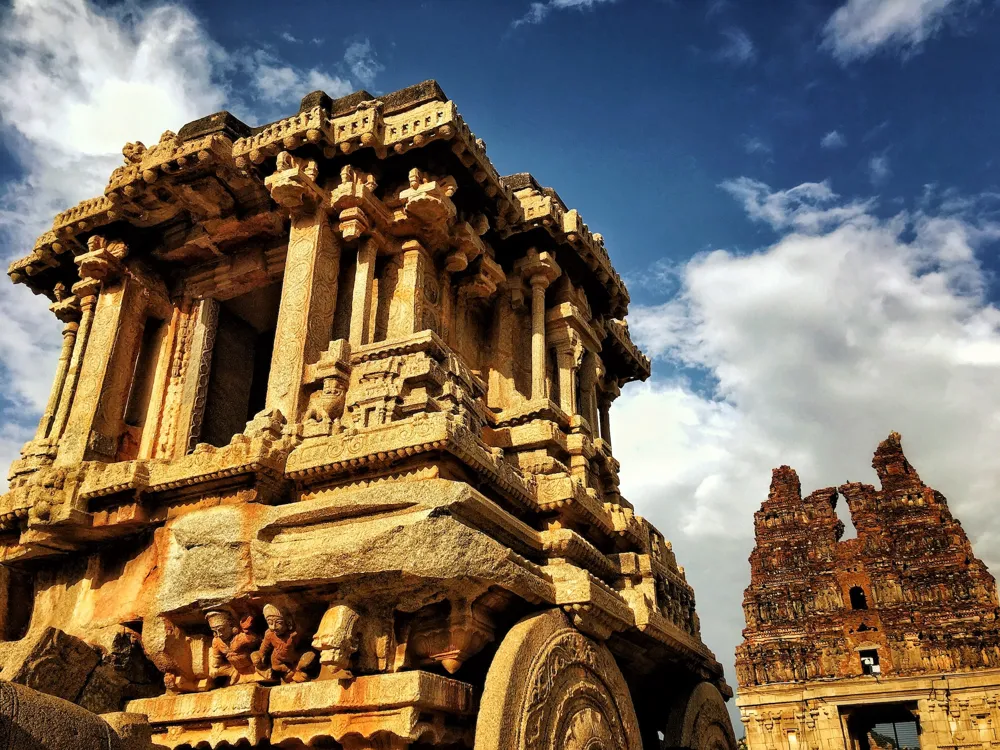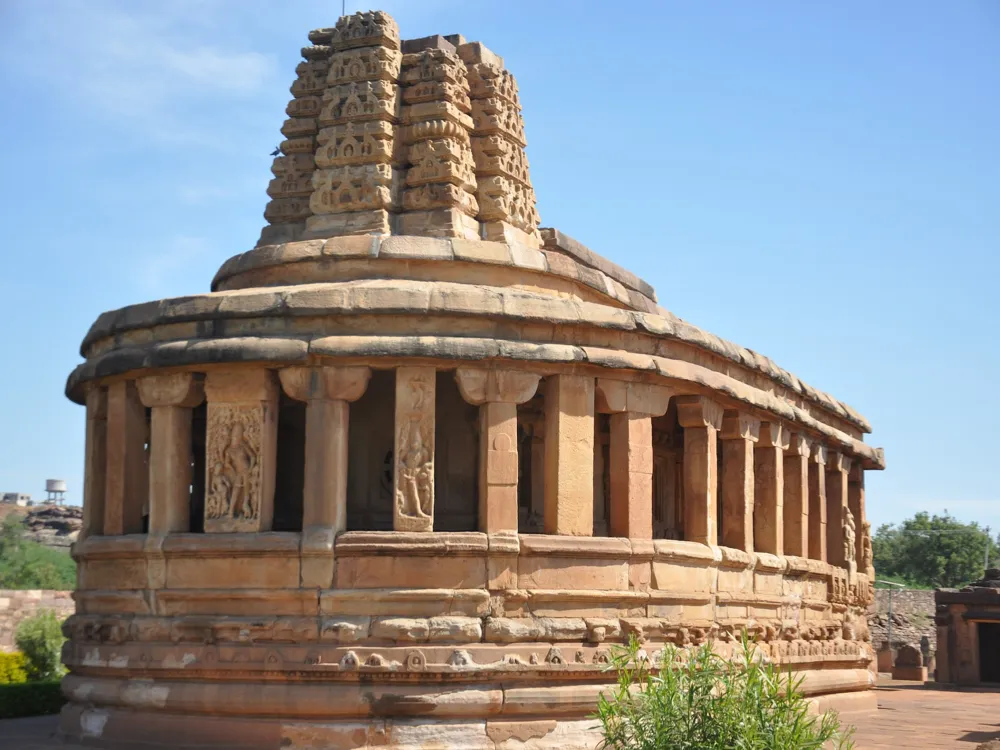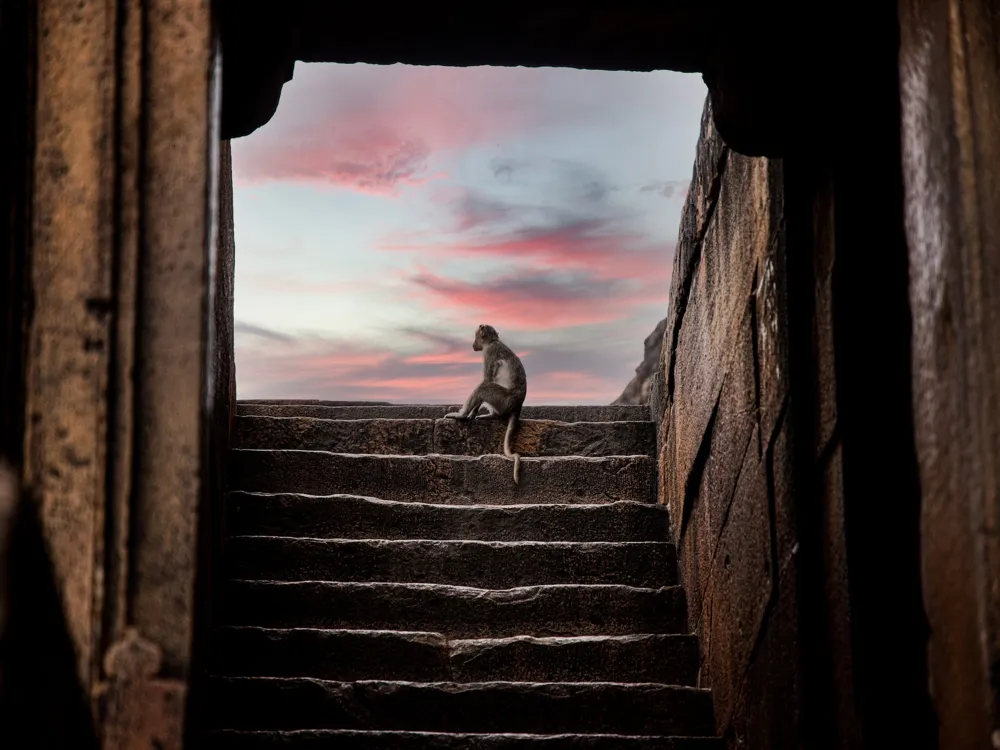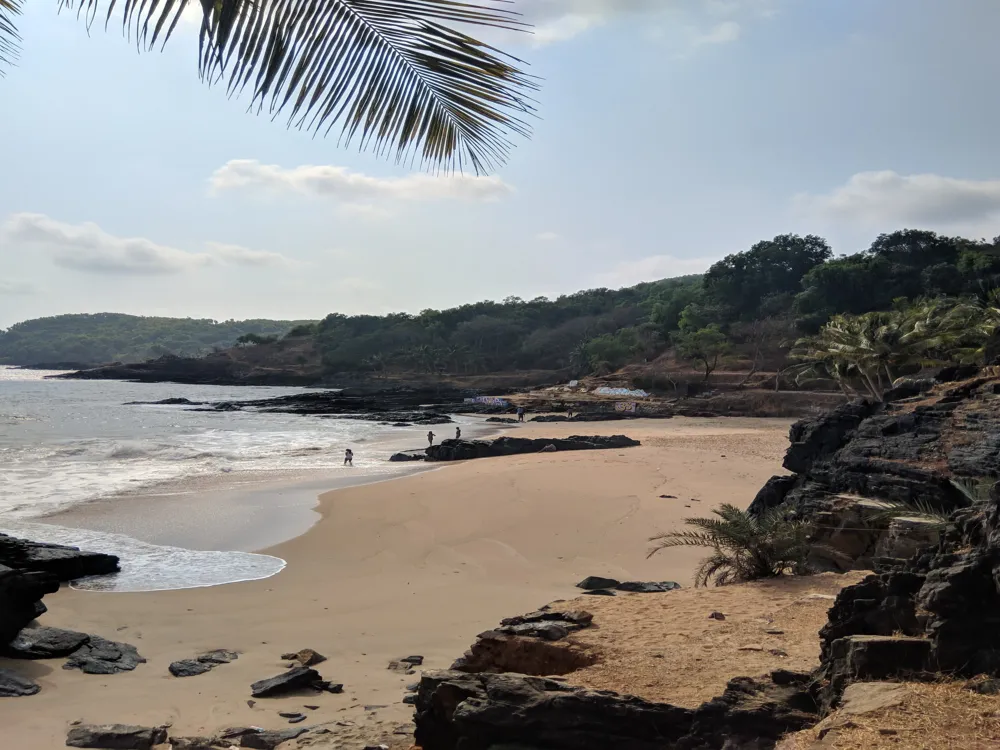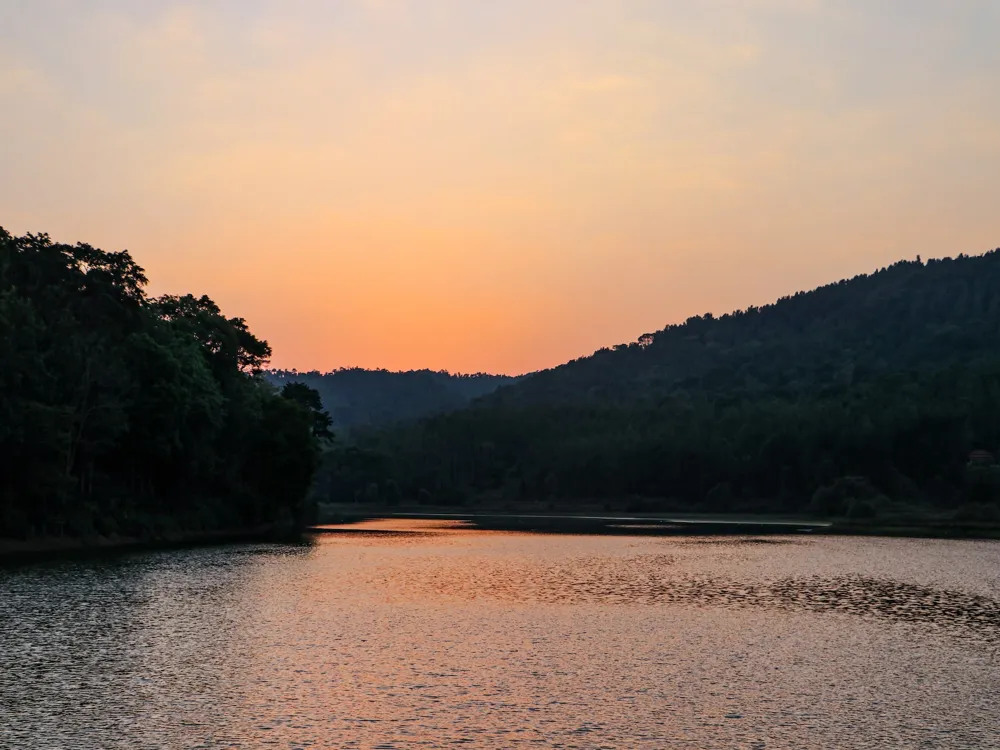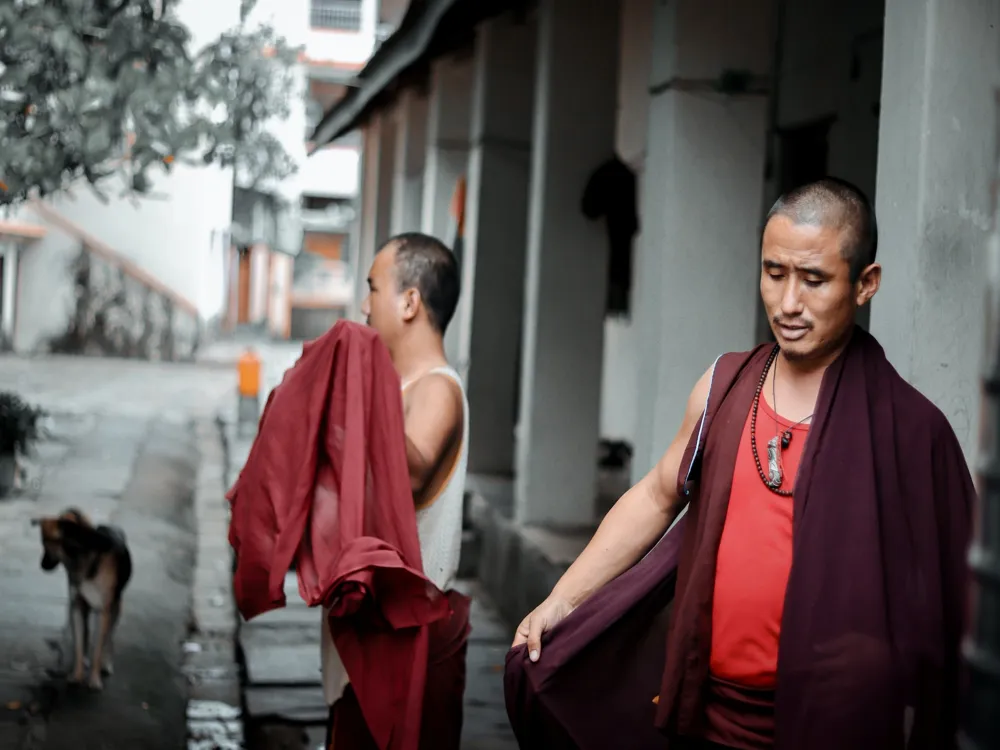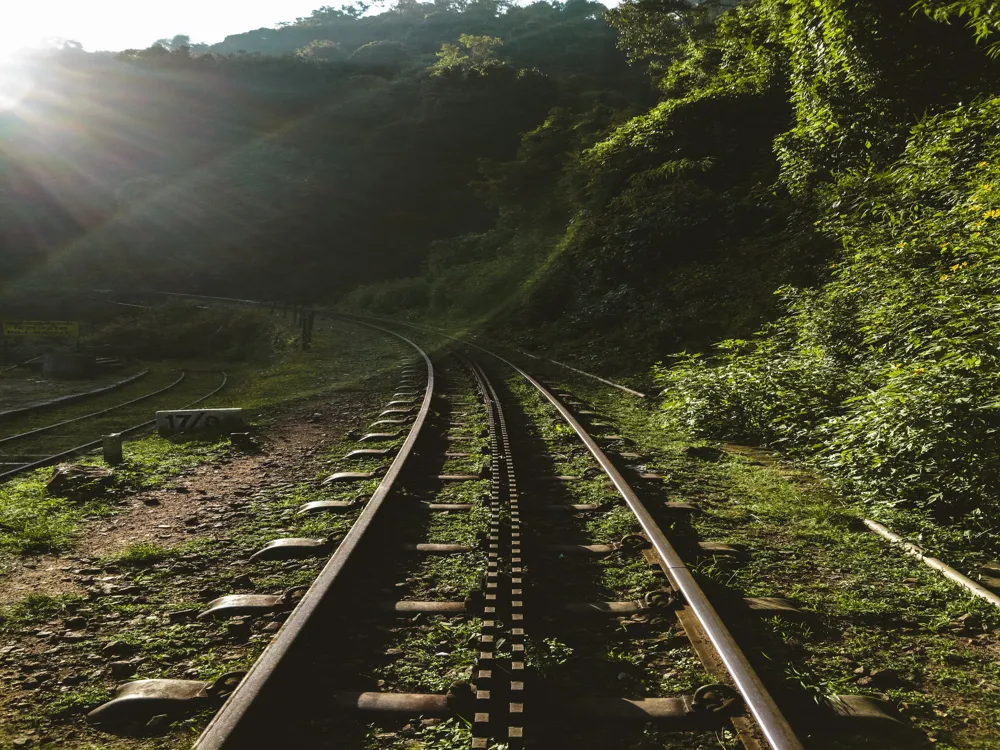The Kontigudi Temples, nestled in the historic town of Aihole in Karnataka, India, are a testament to the rich cultural and architectural heritage of the Chalukya dynasty. Aihole, often referred to as the 'Cradle of Indian Architecture,' hosts over 120 temples, with the Kontigudi group standing out for their unique design and historical significance. This overview explores the Kontigudi Temples' historical background, architectural brilliance, and their place in India's cultural tapestry. The Kontigudi cluster comprises three main temples: the Lad Khan Temple, the Huchiappayyagudi Temple, and the Huchiappayya Math. Each of these structures dates back to the 5th-8th centuries AD, a period that witnessed a significant architectural transformation under the Chalukyas. The Kontigudi Temples are not just religious structures; they are a canvas that illustrates the evolution of temple architecture in South India. From their intricate carvings to the transition in structural design, these temples provide invaluable insights into the early phases of Hindu temple architecture. The architecture of the Kontigudi Temples is a remarkable blend of Dravidian and Nagara styles, characteristic of the Chalukyan era. These temples serve as a bridge between the early rock-cut caves and the later structural temples of South India. This section delves into the architectural elements, design principles, and artistic embellishments that define the Kontigudi Temples. The most striking feature of the Kontigudi Temples is their experimental nature, showcasing a transition from the rock-cut architecture to freestanding structural temples. The Lad Khan Temple, for instance, displays a unique rectangular plan unlike the typical square plan found in many Indian temples. Its roof, resembling wooden structures, indicates an evolution from rock-cut architecture to stone temples. The Huchiappayyagudi Temple, on the other hand, is renowned for its carved ceiling and sculpted pillars, illustrating stories from Hindu mythology. Visiting the Kontigudi Temples is ideal between October and March when the weather is pleasant, avoiding the harsh summer heat and monsoon rains. Visitors are advised to dress conservatively, respecting the religious significance of the temples. It's also recommended to maintain silence within the temple premises. Photography is generally allowed, but it's advisable to check for specific restrictions at certain temples. Using flash or tripods might require special permission. Engaging a local guide can enhance the experience, providing insights into the history and architecture of the temples. Various guided tours are available. The temple complex is generally accessible, but some areas might be challenging for those with mobility issues. Basic facilities like restrooms and small eateries are available nearby. The Kontigudi Temples in Aihole are well-connected by road and can be reached from various parts of Karnataka. The nearest major city is Bagalkot, which is well connected by road and rail. Visitors can hire taxis or take buses from major cities like Bengaluru, Hubli, and Belgaum. The nearest airport is in Belgaum, from where one can hire a taxi or take a bus to reach Aihole. The journey offers a glimpse into the rural and scenic landscapes of Karnataka, making the travel to Kontigudi Temples not just a destination visit but an experience in itself. Read More:Overview of Kontigudi Temples of Aihole, Karnataka
Architecture of Kontigudi Temples
Tips When Visiting Kontigudi Temples
Best Time to Visit
Dress Code and Etiquette
Photography Guidelines
Local Guides and Tours
Accessibility and Facilities
How To Reach Kontigudi Temples
Kontigudi Temples
Aihole
Karnataka
NaN onwards
View aihole Packages
Aihole Travel Packages
View All Packages For Aihole
Top Hotel Collections for Aihole

Private Pool

Luxury Hotels

5-Star Hotels

Pet Friendly
Top Hotels Near Aihole
Other Top Ranking Places In Aihole
View All Places To Visit In aihole
Faq on Aihole
What are the Kontigudi Temples in Aihole?
The Kontigudi Temples in Aihole are a group of ancient Hindu temples located in the historical town of Aihole, Karnataka, India.
When were the Kontigudi Temples built?
The Kontigudi Temples date back to the 7th or 8th century AD, belonging to the Chalukya period.
Who built the Kontigudi Temples?
The Kontigudi Temples were built during the reign of the Chalukya dynasty, although the exact builders are not specifically documented.
What is the architectural style of the Kontigudi Temples?
The architectural style of the Kontigudi Temples is characteristic of early Chalukyan architecture, featuring simple yet elegant structures with intricate carvings and sculptures.
Which deities are worshipped in the Kontigudi Temples?
The main deities worshipped in the Kontigudi Temples are Shiva and Vishnu, reflecting the syncretic nature of worship during the Chalukya period.
View aihole Packages
Aihole Travel Packages
View All Packages For Aihole
Top Hotel Collections for Aihole

Private Pool

Luxury Hotels

5-Star Hotels

Pet Friendly
Top Hotels Near Aihole
Other Top Ranking Places In Aihole
Faq on Aihole
What are the Kontigudi Temples in Aihole?
The Kontigudi Temples in Aihole are a group of ancient Hindu temples located in the historical town of Aihole, Karnataka, India.
When were the Kontigudi Temples built?
The Kontigudi Temples date back to the 7th or 8th century AD, belonging to the Chalukya period.
Who built the Kontigudi Temples?
The Kontigudi Temples were built during the reign of the Chalukya dynasty, although the exact builders are not specifically documented.
What is the architectural style of the Kontigudi Temples?
The architectural style of the Kontigudi Temples is characteristic of early Chalukyan architecture, featuring simple yet elegant structures with intricate carvings and sculptures.
Which deities are worshipped in the Kontigudi Temples?
The main deities worshipped in the Kontigudi Temples are Shiva and Vishnu, reflecting the syncretic nature of worship during the Chalukya period.








